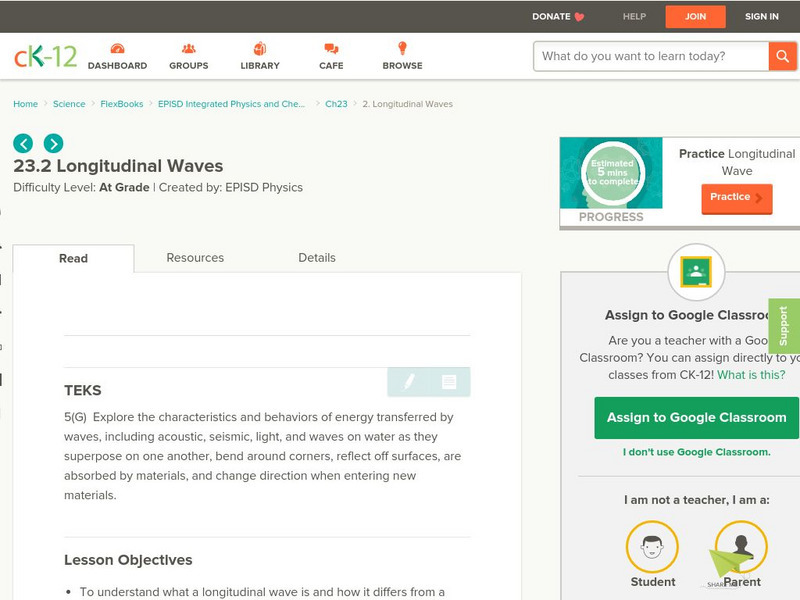Hi, what do you want to do?
Curated OER
Wave Types and Characteristics
Ninth graders identify the different parts of a wave. In this physics lesson, 9th graders observe wave behavior as it travels through a boundary. They determine the relationship between wavelength, frequency and velocity.
Curated OER
From Vibration to Sound
Learners observe a series of demonstrations to illustrate wave movement. In this sound wave lesson, students witness how objects create waves when dropped in a dish of water, use a rope and slinky to produce transverse and longitudinal...
National Nanotechnology Infrastructure Network
Jell-O® Waveguide and Power Loss
Jell-O® can help model the transmission of light through fiber optic cables. Young scientists use the jiggly dessert to make a waveguide to transmit a laser beam from one point to another. Their models help them learn the function...
Curated OER
What Wavelength Was That?
A combination of informative text, photos, and graphics comprise this sharp show on electromagnetic radiation. Some slides mention hands-on activities for demonstrating concepts, so if you want to include them you will need to figure out...
Curated OER
Studying Earthquakes in the Classroom
Students simulate p waves (longitudinal) & s waves (transverse) using a slinky and rope, simulate one of the three types of lithospheric boundaries, and investigate plate tectonics at some select Web sites.
Alabama Learning Exchange
Alex: Transverse Waves
Students will classify waves as mechanical or electromagnetic. Students will describe longitudinal and transverse waves. Students will show a transverse wave using a slinky.This lesson plan was created as a result of the Girls Engaged in...
CK-12 Foundation
Ck 12: Longitudinal Waves
[Free Registration/Login may be required to access all resource tools.] Students can use this module to find out what a longitudinal wave is and how it differs from a transverse wave.
Exploratorium
Exploratorium: Science Snacks: Slinky in Hand
Use a Slinky toy to investigate the resonance of transverse and longitudinal waves.












